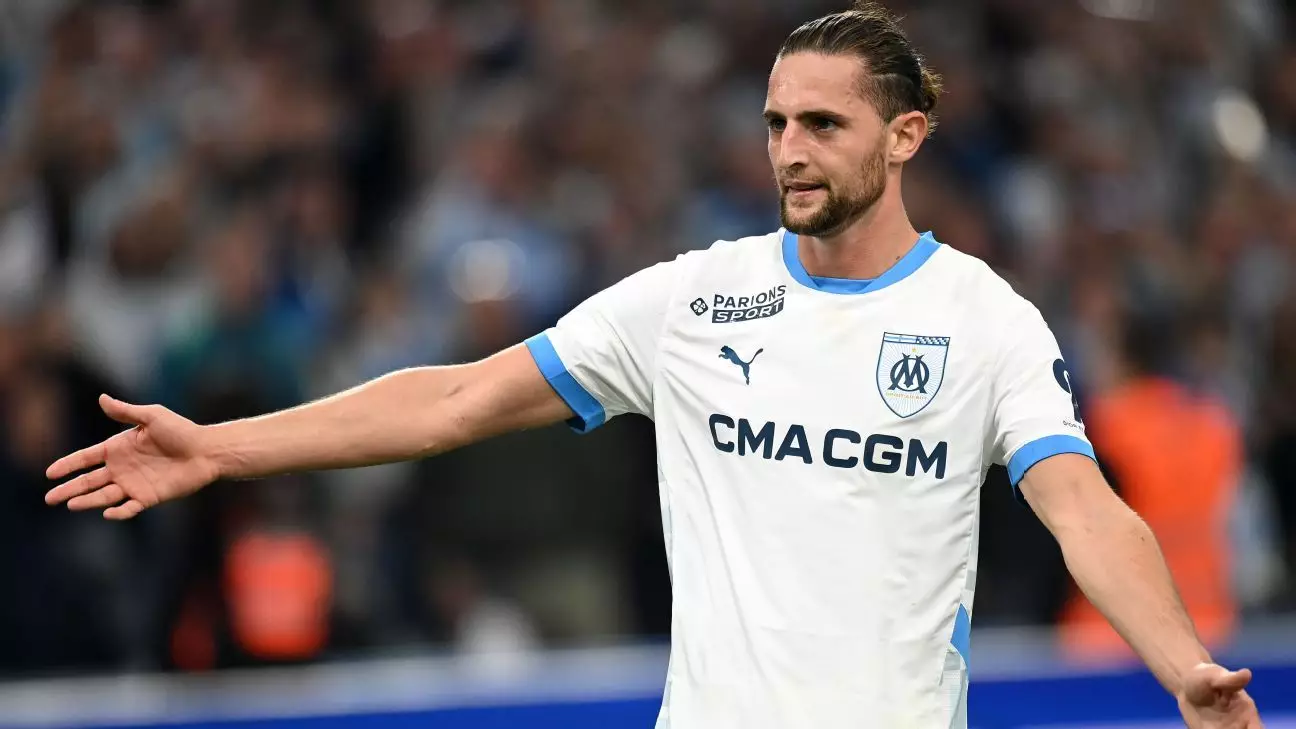The recent violent outburst within Olympique de Marseille’s dressing room exposes a harsh truth about contemporary football environments: they often hide underlying tensions beneath a polished facade. When emotions boil over into physical confrontations, it reveals a systemic failure not just within the players’ relationships, but also in the management’s ability to maintain discipline and morale. This incident transcends a mere clash between two individuals; it underscores a deeper malaise—one rooted in unaddressed frustrations, poorly managed egos, and the immense pressure players face in high-stakes football. Such outbreaks suggest that the dressing room, supposedly a sanctuary for camaraderie and collective focus, has become a battleground where tempers often run unchecked. This episode serves as a stark reminder that behind the glamor of sport lies a fragile human element, vulnerable to breakdowns that threaten team cohesion and club integrity.
The Disintegration of Professional Conduct
The severity of the altercation, described as “extremely violent” by Longoria, indicates a breach of not only professionalism but also fundamental human decency. While rivalries and disagreements are common in competitive sports, the escalation to physical violence typifies a breakdown of mutual respect and emotional control. The fact that these players, Rabiot and Rowe, exchanged insults openly before resorting to violence highlights the corrosive impact of unresolved conflicts left unaddressed by leadership. It further questions the effectiveness of the club’s internal code of conduct—if such behavior is tolerated or ignored until it erupts publicly, it jeopardizes the entire organizational fabric. The incident also raises critical questions about the psychological wellbeing of players, who often operate under immense stress yet are expected to channel their emotions constructively. When that fails, chaos ensues, as proven by this damaging incident at Marseille.
Implications for Player Careers and Club Reputation
The decision to transfer out Rabiot and Rowe embodies an urgent attempt to contain the fallout from this upheaval. Yet, it also reveals the club’s recognition of deeper issues—namely, that an environment where such violence can occur is fundamentally flawed. Both players, with considerable potential, find themselves at a crossroads— their futures now uncertain amid allegations of unacceptable conduct. For Rabiot, an internationally recognized midfielder with previous links to top clubs, this turmoil could tarnish his reputation, overshadowing his talent. Rowe, still young and rising, faces similar challenges that could inhibit his development if mismanagement persists elsewhere. More broadly, the club’s credibility takes a hit, as fans and stakeholders question whether Marseille values discipline and unity as highly as talent. This incident stands as a cautionary tale for clubs across the globe: neglecting internal harmony inevitably results in costly disruptions and damaged reputations.
The Broader Reflection: The Toxic Culture in Competitive Sports
This violent episode also prompts a broader reflection on the culture ingrained within modern football and sport at large. High-performance environments often prioritize results over psychological health, inadvertently nurturing a climate where tempers flare and incidents like this become almost predictable. The club’s decisive action—placing both players on the transfer list—can be seen as an acknowledgment that such volatile situations threaten the very essence of team integrity. It calls into question whether current sports management models sufficiently address the emotional and social dynamics of players. Additionally, it highlights a need for stronger leadership that can foster resilience, emotional regulation, and respect among players. In the end, the Marseille incident is a wake-up call: unless the culture evolves to prioritize mental health and mutual respect, similar chaos will continue to undermine the sport’s integrity and the prospects of young athletes striving for greatness.

